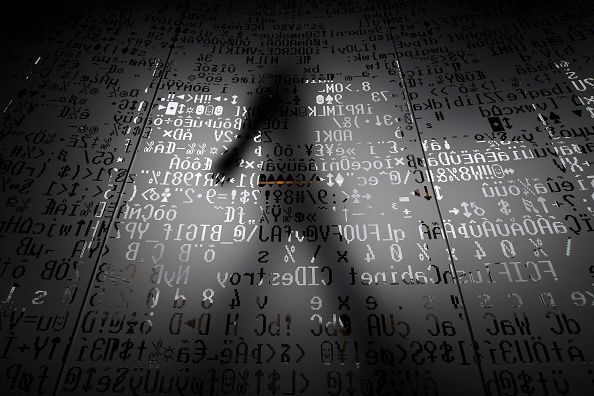
Is it possible to build a network that's impossible to hack? Quantum physicists believe it might.
Scientists have previously demonstrated that quantum pathways of communication could be secure, but only from one quantum computer to another. Now, a team from the University College London has shown for the first time that unconditionally secure communication is possible between multiple quantum devices.
Quantum devices, meaning any technology capable of quantum computing, aren't beholden to the rules of classical physics that we're accustomed to. While today's computers are limited to encoding information based on one of two states—a 0 or a 1—quantum devices operate using quantum bits, which can allow for multiple states of particles. By allowing for less intuitive behavior of particles at the microscopic level that regular physics can't sufficiently explain, like the idea that something can be a wave and a particle at the same time, quantum computers have the potential to be more powerful than any supercomputer today.
Information shared between quantum devices can't be breached by a non-quantum device, so the first step in building a secure quantum network is to make sure that the computers in question are secure themselves. The team created a method that first tests a device to confirm that it's quantum-based, then from that info, established secret encryption keys that can only ever be shared between the computers that created them. A paper describing the research was published in the journal Physical Review Letters.
It's a big step forward in the pursuit of a hack-proof internet. A large-scale network will need to be accessible from more than two computers. The European Union and the United Kingdom are committing the equivalent of hundreds of millions of dollars each to quantum tech, according to a University College London press release. The researchers compared it to a "technology arms race."
Chinese scientists aim to launch more #quantum satellites to build a hack-proof global quantum communications network pic.twitter.com/45UtKyTLEo
— CGTN (@CGTNOfficial) August 10, 2017
The race to achieve a hack-proof quantum network has been escalating over the last couple of years. To understand the urgency, one has to first understand that the traditional systems we think of as secure are not; not really. When we say something like the Cloud is "secure," what that actually means is "very, very hard to hack."
"When you buy something on Amazon and you put in your credit card details and it's sent to the person you're buying from, it's encrypted using a mathematical procedure, so it's based on an assumption," lead author Ciarán Lee, a research fellow in the UCL Department of Physics & Astronomy, told Newsweek. "The assumption is that that encryption is very hard to get past."
But a quantum computer—which does not operate under any traditional system—can quickly invert such an encryption, meaning reverse-engineer it to crack it open. Quantum theory does not care how hard a math problem is.
So, in order to defend against quantum hacking, we need quantum security. A quantum network would replace the traditional mathematical encryptions with quantum law, meaning in order to break in, someone would need to literally break the laws of physics. In other words, secure here doesn't mean very hard to break into; it means secure.
2018 could see the beginnings of a global quantum internet https://t.co/ol5MpqgRDU pic.twitter.com/CLLUFxFLDJ
— The Economist (@TheEconomist) January 1, 2018
Quantum security has its potential Achilles' heel, too, but only if an error is made while building it, Wired has reported. Lee said that any potential weaknesses concern the physical construction of the quantum devices. Essentially, errors could turn up in the hardware element if the computer isn't made correctly, by a trusted manufacturer. Lee's work, which is more analogous to software than hardware, is unconditionally secure in every sense of the word.
Even if a quantum network were still breachable under some set of to-be-determined circumstances, the benefits of such a system still speak for themselves. No one can afford to be left behind when the stakes are this high, hence the distinct arms-race atmosphere currently enveloping the field.
Lee said that a number of institutions around the world are planning field trials of large-scale quantum networks over the next couple of years. The idea behind the funding from the EU is to build secure quantum connections between major European cities. He believes they could be built within the next five years. Until then, we'll all have to just keep reassuring ourselves that our data really is secure when we order stuff off Amazon.
Uncommon Knowledge
Newsweek is committed to challenging conventional wisdom and finding connections in the search for common ground.
Newsweek is committed to challenging conventional wisdom and finding connections in the search for common ground.
About the writer
Kastalia Medrano is a Manhattan-based journalist whose writing has appeared at outlets like Pacific Standard, VICE, National Geographic, the Paris Review Daily, ... Read more
To read how Newsweek uses AI as a newsroom tool, Click here.








